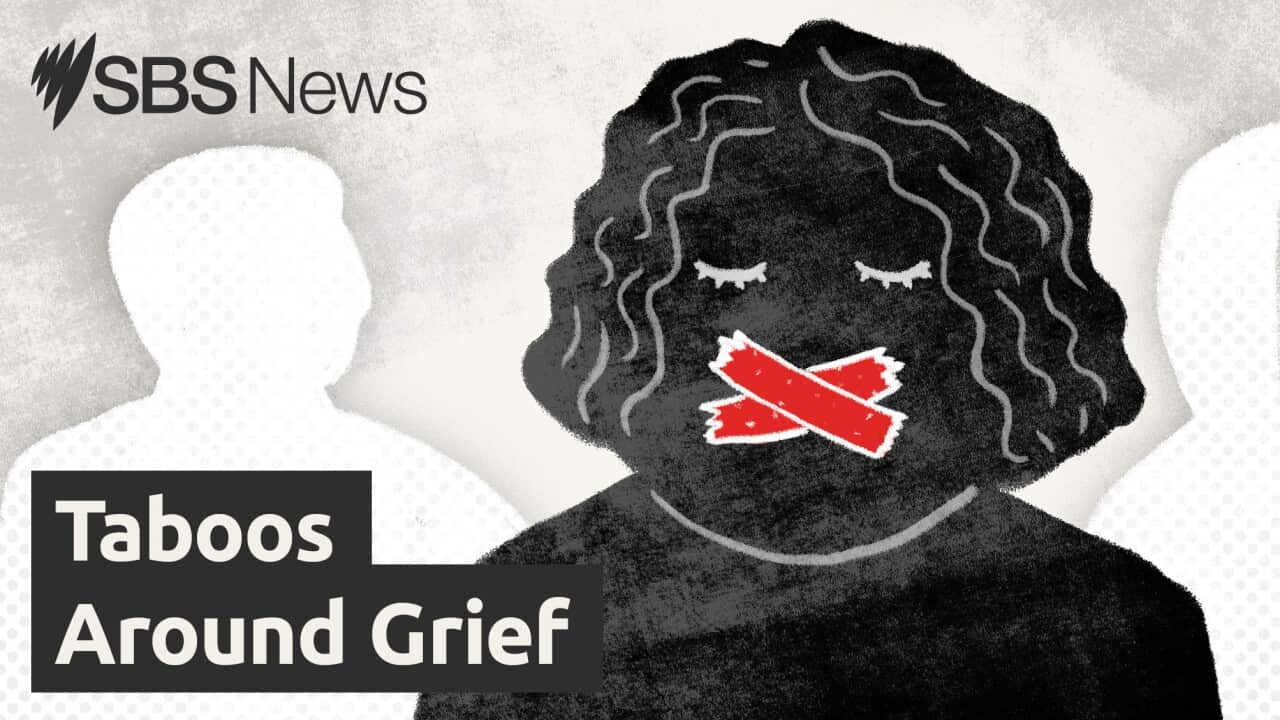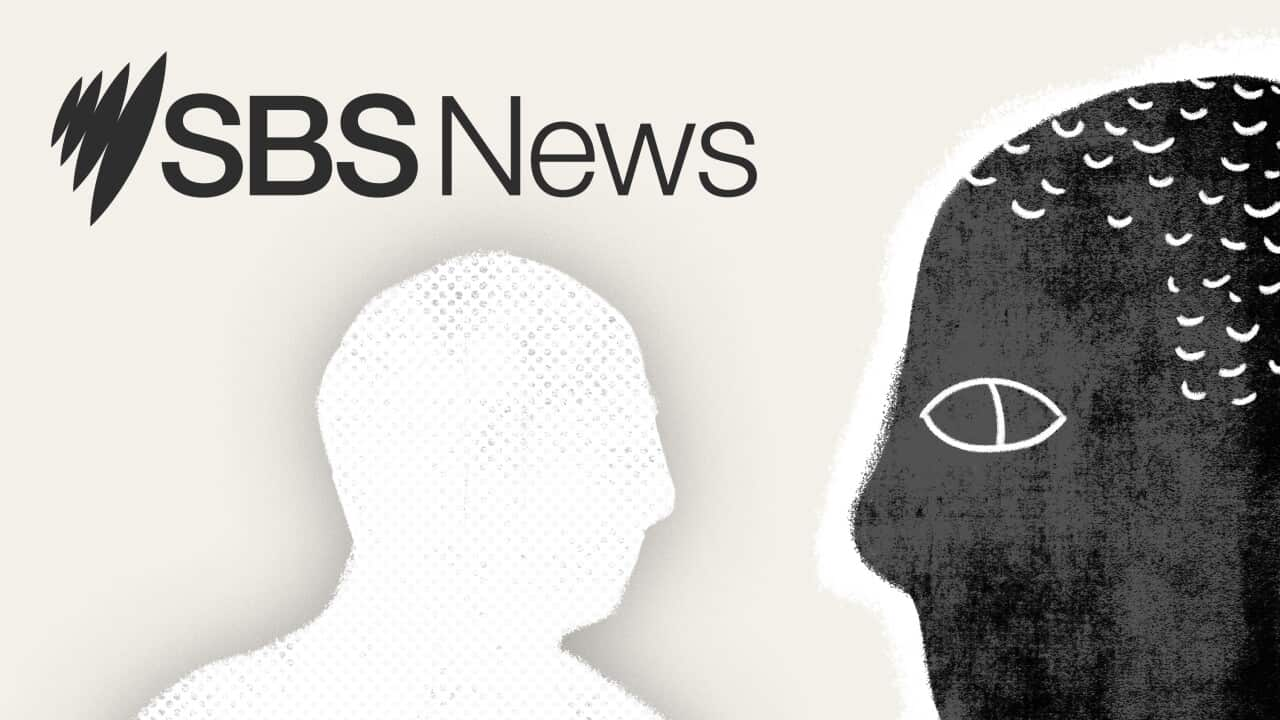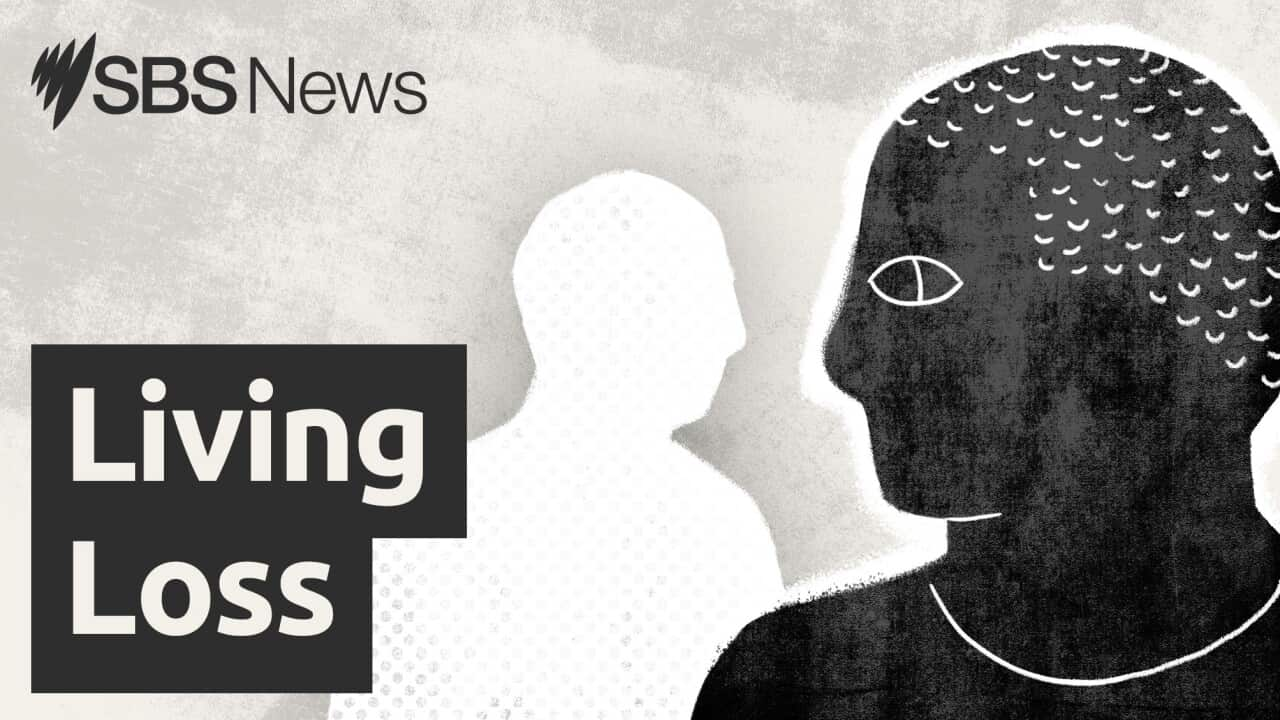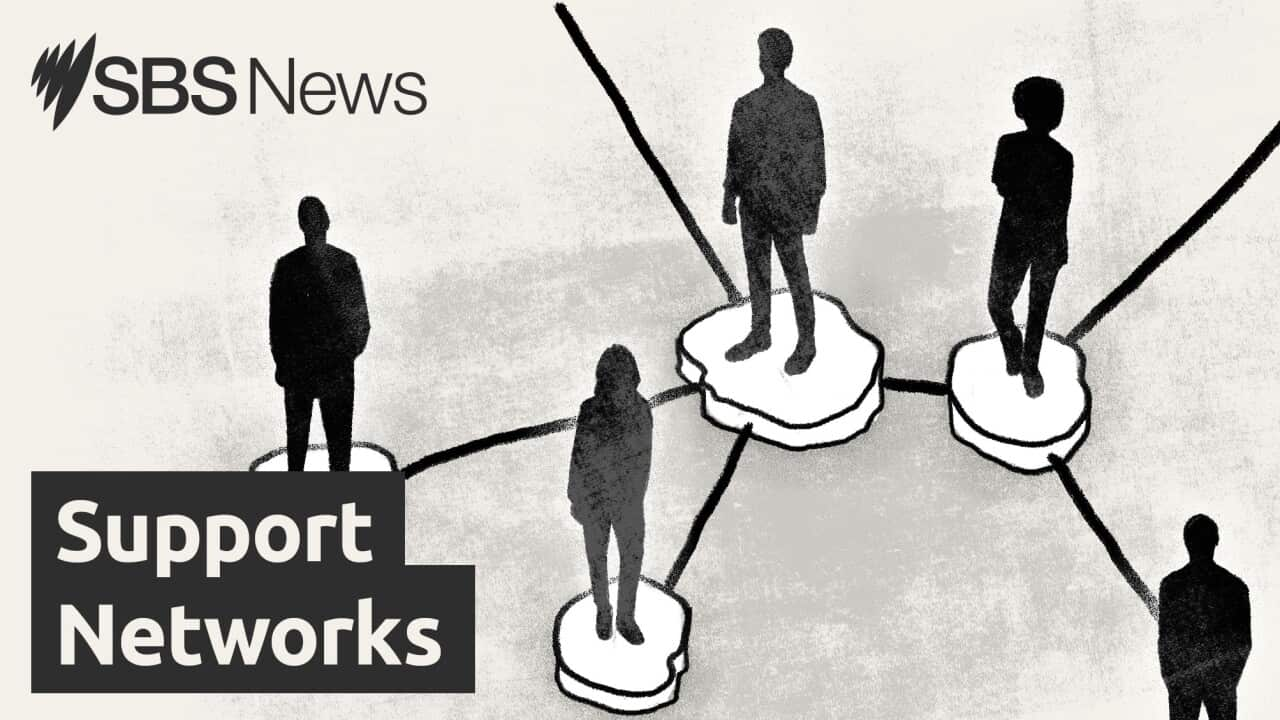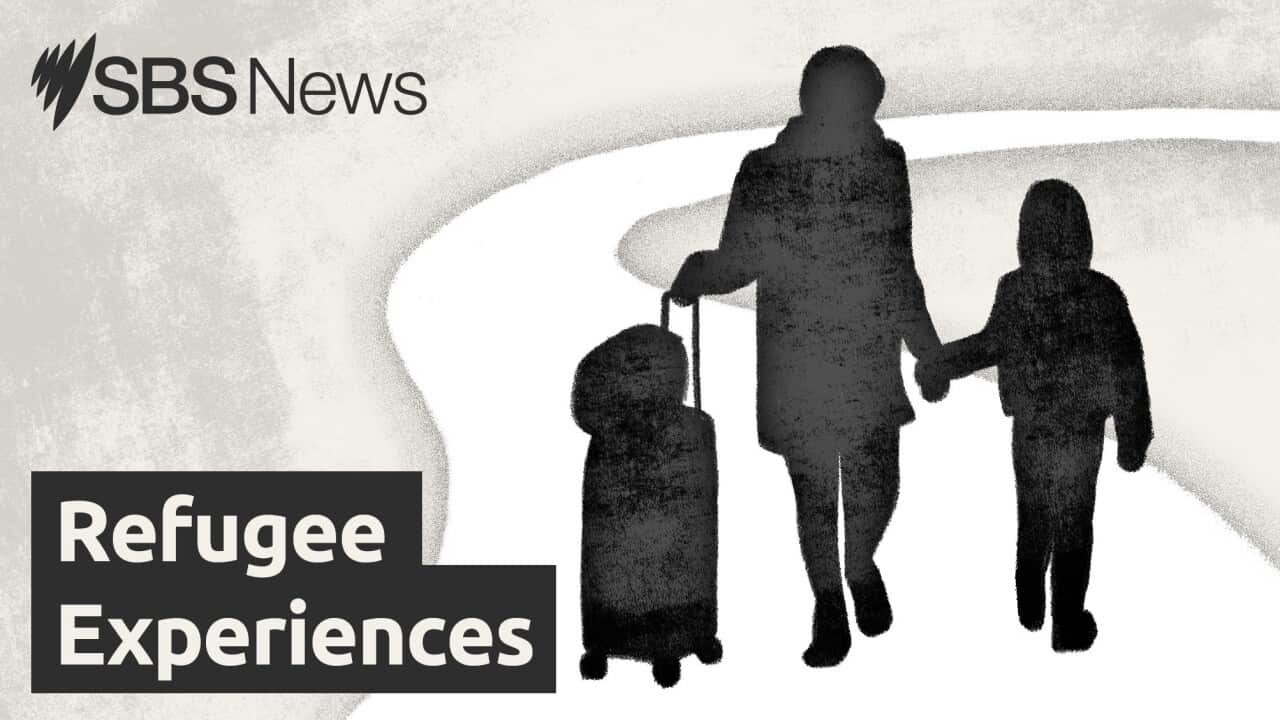TRANSCRIPT
“Probably about three weeks went by, and I started to notice that my workplace was like come on, you've called in sick a few times already, we really need you to be back in the workplace and performing.”
“Because it's part of the human journey, and it's something we shouldn't rush, or we shouldn't make it to be a spectacle.”
Everyone, at some point or another, will lose someone or something they love.
And yet death and grief are often seen as taboo, including in our dominant western culture.
So how do different cultures hold space for grief, and are some better equipped than others?
And how can we think about grief beyond the concept of death, looking at other profoundly life-changing forms of loss?
I'm Catriona Stirrat , and this is the second episode of 'Living Loss'.
In this episode, we explore the cultural taboos that still surround grief, looking at the unique and multifaceted ways different cultures hold space for grief.
Sophie Mills is founder of the Grief Revolution - an organisation that tries to break down taboos surrounding death and grief through counselling services and community workshops.
Her organisation was inspired by the death of her father when she was 24 years old, following two years of profound grief and depression, and subsequently the birth of her second child.
Sophie says her loss was compounded by what she describes as a grief illiteracy in both her household and wider western culture.
“When I was 24 I had my Dad die, and I didn't really have any skills in terms of how to process that grief. And I found that sort of for the first few weeks it was okay because I guess that was accepted for you to have an emotional response for the first few weeks. Probably about three weeks went by and I started to notice that my workplace was like come on, you've called in sick a few times already, we really need you to be back in the workplace and performing. My friends were kind of confused as to why I wasn't coming to the social events. And I was 24 at this stage, I was still a young woman expected to be happy go lucky, life shouldn't have dealt you too many hard blows yet.”
Sophie says she came to understand that our consumer-based society doesn't allow time for grief, as an extended emotional response is counter-productive.
She also found grief was often perceived as eternal, which was a huge barrier to living with loss.
“I think we have an underlying belief that once a huge loss or trauma or something to happens to us, that we will never get over it, and we almost wear the suffering as a badge of honour. And I believed that so whole-heartedly when my Dad first died. We had a very deep connection. He was a quadriplegic and I was his carer. And you know he was my father, but you know he was also my friend, so it was very entwined. So the loss was profound for me. We will never be able to forget that person and nor would we want to, but the messaging of you could never have a thriving, happy, joyful life after a major loss is really detrimental to the individual and the collective.”
Employees in Australia are entitled to two days of compassionate leave, following the death of a family member.
Grief counsellor Marianne Bowdler explains how this is not conducive to a holistic grieving process.
She says work and other commitments often interfere with rituals, which are pivotal in navigating grief.
“The current predominant western culture if I could call it that is not very comfortable around death, not very good at ritual, and not very good at supporting grieving. The way that we give two days bereavement leave just doesn't correspond. Other cultures have rituals that you do at one year, or rituals you do at six months, rituals that you do in an ongoing way. And the rituals we have in our different cultures, our many many different cultures that we have in Australia, are all ways that help us do that first task of acknowledging the reality of the death. The difficulty I think is where all these important rituals of cultures come into conflict with our work or our boss.”
Grief Australia's Christopher Hall says our society is to blame for most of the problems a grieving person encounters.
He says we often fail as a community to offer appropriate care to grieving people.
“So that's a really strong message from our culture, that grief is like the common cold. You go through this short period of disruption but you return to be a normal, productive member of the human race within three to four days. We know social support starts to drop off, diminish three to four days after the death. So by the time you've defrosted the last casserole, and thrown out the last bunch of flowers, the expectation is that get back on the horse and get back into life. And grief is not like that. We like things that are tidy and neat. In the early days people used to talk about going through particular stages in this particular order. It's not like that, it's messy and it takes time.”
Julia lost her mother just three days before her 17th birthday, and found there was very little time to process her grief.
She had also just moved to Australia from Indonesia, where it quickly became clear grief was processed very differently.
“It was very different here in Australia compared to living overseas. I was living in Indonesia before this, and when it comes to grieving people take it much more seriously. And they actually give you much more time in the process, having people be a part of that event. Whereas here, it feels like it was all done much more quickly.”
Julia wishes the western world could adopt aspects of the more private ceremony carried out in countries like Indonesia.
“I think it makes the experience much more relatable because it's part of the human journey, and it's something we shouldn't rush or we shouldn't make it to be a spectacle. They place such a heavy importance on making it sacred, so we would have religious people conducting these ceremonies. Not everyone is allowed to attend. There are strict protocol on what to follow during the service, and it's not something publicly displayed. It's only within that community, so it's very tight knit, and I think that's what makes it different.”
Sophie certainly found there was no adequate vocabulary around grief in dominant western culture, inspiring her to establish the Grief Revolution.
She became deeply curious about the intrinsic correlation between birth and death after the birth of her second child.
As part of the organisation, Sophie works as a death doula and grief coach, assisting individuals with a terminal diagnosis alongside their families, as well as offering counselling services and community workshops around grief.
“Ideally what I'm hoping to do is alleviate anxiety, allow people to flow with the process more. But because we live in such a fear-based culture, it is really challenging to essentially re-train our brains to view death differently. Because I think there are so many mothers that don't even say the word death to their children, or even many adults say my such and such passed away, as opposed to my such and such died. And it's because of the discomfort that we physically feel in our body when we hear the word death, die, dead.”
It's not just western culture which has an avoidant relationship with death.
Joseph Ho has been working as a funeral director in Sydney for 15 years, mostly with Chinese communities.
He says in his experience there's a reluctance to talk about death in Chinese-Australian communities.
“There's a big avoidance, whether it's in Sydney Chinese community or in Hong Kong or in China, they're always trying to avoid talking about death. Because they do believe it brings them bad luck, they don't want to jinx it, in a word. It's hard to have them understand getting it, they pre-plan or pre-pray for a funeral, start planning a funeral. People don't, people believe you start planning, you die sooner. It's that type of thinking.”
Mr Ho says these beliefs are cultural, but religion plays a significant role.
He describes how Buddhist or Taoist faiths tend to place greater emphasis on certain ideas around death, whereas Christian Chinese are less likely to express these concerns.
“They always try to avoid dates that fall on a Thursday, dates with number 4 in it. They would like to pick a particular date or time for the funeral service, so that it doesn't come into conflict with the children's star sign or I guess the year they were born. So there's no concept that it will bring them bad luck for attending a funeral on a certain day.”
In Mr Ho's experience, Asian cultures are generally less expressive about their emotions than western cultures.
He says this is evident even when a family member dies.
“Asians don't express their grief or even their love. So Asian parents don't express their love, that's just the Asian parent way. At the same time, the Asian kids don't express their grief towards the parents. There is sadness, there is upset. But at the same time, they need to focus, they will focus on the funeral, and try to do every single thing according to the Mum's culture or belief, the deceased's culture or belief. They're able to focus a bit more on the actual details of the funeral, and they might grieve at their own time afterwards.”
But as Dr Ho describes, this doesn't mean grief is absent.
In fact, it can depend a lot on the individual as well as generational differences.
Dorothy Yiu is the founder of the Chinese Cancer and Chronic Illness Society of Victoria, an organisation that began 27 years ago when Ms Yiu was asked by Cancer Council Victoria to help establish a support network for Chinese-speaking people living with Cancer.
Across her many years of working with Cancer patients, Ms Yiu finds there's a variety of responses to a diagnosis for both the individual and their loved ones.
But anxiety around death is certainly prevalent.
“Sometimes it could be a housing issue, or a young mother who is just diagnosed with Cancer, and worrying, 'who is looking after my kids?' Or a breadwinner who is suddenly diagnosed with cancer, and they think oh what to do? Where can I get money? I need to feed my family. All these things, big things and little things. And also emotional issues as well because they really find it hard to deal with this sudden crisis you know, like I'm diagnosed with cancer. And people still have this fear, with this debilitating illness. Because they think, I mean a long time ago, we think cancer means death.”
For some people Cancer can mean death, and Ms Yiu says there's again a mixed emotional response to a terminal diagnosis.
She says traditional Chinese culture avoids talking about death altogether, but in Chinese-Australian communities generational and individual preferences can shape the willingness to discuss death and dying.
“I actually felt that a lot of older people are quite reluctant to talk about their personal experience. But say in general if I go to a group and say, 'Is it okay if I talk about death and dying?' Everybody will say 'that's fine'. But if I talk to a client on an individual basis about their own mortality, then they're a bit uncomfortable because it's about himself or herself.”
She said the communication in some families can start to break down following a diagnosis, describing an experience where a client was distressed about his family's decision to conceal his father's terminal diagnosis from him.
“The family do not want the patient to know. They don't want the patient to know because they think that he can't hack it. But that's not something we would really encourage our clients to do. That's why we explain to them it's good actually not to hide. So that's why he said he doesn't know how to disclose this prognosis to his father.”
Ms Yiu has witnessed a sense of relief for individuals and their families in palliative care when they have been able to share their experiences.
It might start with reluctance, but she says it nearly always reaps benefits when people open up about their grief.
“And some people don't understand the benefit of counselling, because sometimes they say 'what's the point? You can't bring my wife back, you can't bring my husband back'. So sometimes it's hard to engage them, sometimes you just try to avoid counselling. Just say, 'ah can I come to have a chat with you?' And they are open to it. And then when we chat they say, 'thank you very much Mrs Yiu, you know having a chat with me, and I had the opportunity to talk about my late husband, my son'. I think the most important thing that we as workers acknowledge, really give permission to talk about their grief, really give them permission to grieve any time, any day.”
This urge to hide from grief is something Sophie understands.
In the first few weeks following her father's death, she used to cry in the back of the car to hide her grief even from her immediate family.
But since establishing the Grief Revolution community, she's discovered an immense relief in talking about death.
“The moment you give people permission there's like this "ahhhh", everyone just settles into it. And when there's somebody holding a space and they're using the words, death, died, dying, you set the tone. You often find, because we're all human, we all feel the same thing. We've all had somebody in our life die, or a goldfish when we were a kid, or there's been a loss somewhere. So we've all experienced it. And as soon as you bring those unspoken things to the surface, most people go, 'yeah, thank you'. It's just the truth, everybody dies, and it's the fear that holds us back.”
In our next episode, we delve into how grief is navigated in Indigenous Australian cultures, and the ways in which complex layers of grief are explored.
